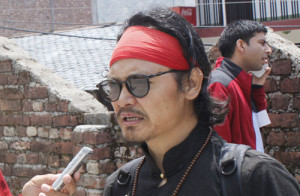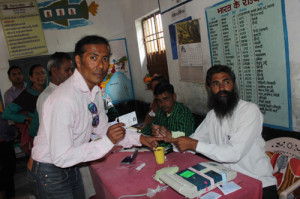April 7 was election day in Himachal Pradesh, and this year Indians were not the only ones heading to the polls. For the first time in history, Tibetans living in exile joined the ranks of Indian voters participating in the nation’s general election. But according to State officials, the Tibetan turnout was very low – a reflection of Tibetans’ concern that registering to vote would draw energy away from the Tibet issue and require relinquishing one’s refugee status.
Voting rights for Tibetans living in exile were granted for the first time this February. The action followed in the wake of two High Court rulings in Karnataka and Delhi in August 2013 that made citizenship available to Tibetans born in India between January 1950 and July 1987. As a result, approximately 40,000 Tibetans in Himachal Pradesh were made eligible to take part in this year’s 16th Indian general election, but only 1,500 registered and voted, and the Tibetan turnout fell far short of the State’s target of 6,000 Tibetan voters.
The turnout is thought to have been diminished by concern in the Tibetan community that participating in India’s elections would draw momentum away from the Tibet issue. As poet and activist Tenzin Tsundue explains, “We are not immigrants, but political refugees waiting to return home…Indian citizenship may be personally beneficial, but it will leave us divided…[and] culturally diluted.” The turnout is also thought to have been reduced by the concern that voter registration would require Tibetans to surrender their refugee status and refugee Registration Card, thereby putting in jeopardy a core element of the identity of Tibetans in exile.
Not all members of the exile community see voting as counterproductive to the Tibet issue or damaging to Tibetan refugee identity, however. Lobsang Wangyal, a McLeod Ganj – based entrepreneur and voter stated, “[I] feel that I have a voice in India now. However, my Tibetan roots and the quest for free Tibet will not change…I feel good about [voting].” For others still, participation in Indian democracy is imperative, giving Tibetans a powerful platform on which to press the Tibet issue and to alleviate some of the hardships of life in exile in India, such as restrictions on property ownership and employment. As Dibyesh Anand, an associate professor of international relations at London’s Westminster University states, “Tibetans have had to fight at every level through the court system to get limited rights and recognition within India and this issue is part of that struggle for recognition…”






 Print
Print Email
Email